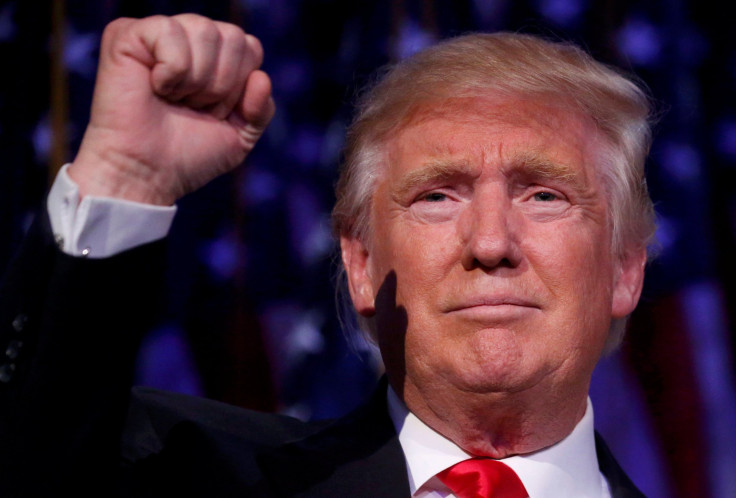Student Loan Forgiveness: Donald Trump Vows To Tackle High College Tuition Rates

Democratic candidates Hillary Clinton and Bernie Sanders both campaigned for president on college tuition plans aimed at lessening costs for students. But it's President-elect Donald Trump who is now poised to usher in progressive education reform.
Trump has said under his plan as president tuition repayment would be capped at 12.5 percent of the borrower’s income, according to USA Today. He also said all student debt loans would be forgiven after 15 years.
Trump's plan could be "the most liberal student loan repayment plan since the creation of the federal financial aid program," the Washington Post reported.
College student debt topped $1 trillion and surpassed the amount of car, home, and credit card debt in the country in 2012, CNN reported. Existing government programs already let borrowers repay their monthly student loan payments based on a percentage of their salaries. The income based repayment plan called Revised Pay As You Earn (REPAYE) caps payments at 10 percent of graduated students' income and forgives remaining student debt after 20 years of payment.
The education page on Trump’s website says he wants to make college “very affordable” and that the current system is “not fair.” He wants to work with Congress to utilize tax breaks and federal tax dollars to incentive colleges to reduce their costs.
Trump said his plan would require colleges to use their endowments to lower tuition costs- and if they failed to do so, they would lose those donations being exempted from taxation by the federal government. He said he wanted to hold universities more accountable for spending the money they received as endowments on administration costs, rather than on students.
"If colleges refuse to take this responsibility seriously, they will be held accountable, including by reconsidering whether those with huge endowments deserve to keep those endowments tax exempt. We have a lot of power over the colleges. And they're not doing the job of cost cutting," Trump said.
When pressed for details, an unnamed Trump aide told CNN the plan would be funded by lowering federal spending on universities amid the “ever-rising” tuition costs, and issuing “fewer defaults” on student loans.
In May, Trump’s campaign national co-chair and policy director Sam Clovis, told Insider Higher Ed that colleges should be more involved in issuing students loans and helping them to repay them. He said that students’ majors or post-graduate earnings should influence whether they should be given educational loans.
© Copyright IBTimes 2025. All rights reserved.






















